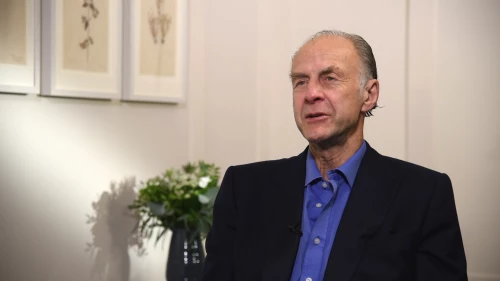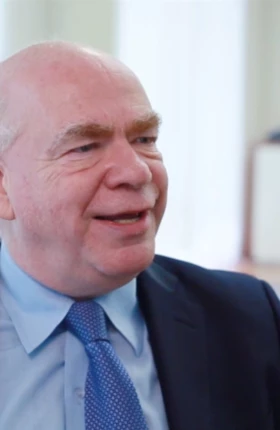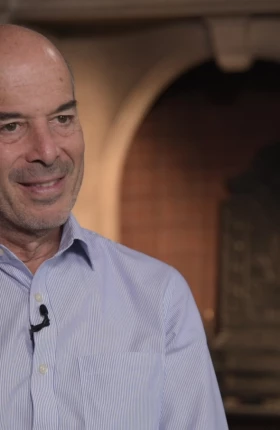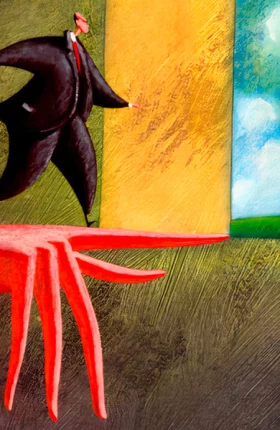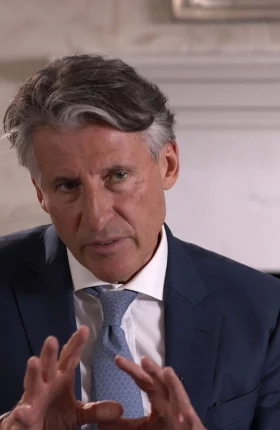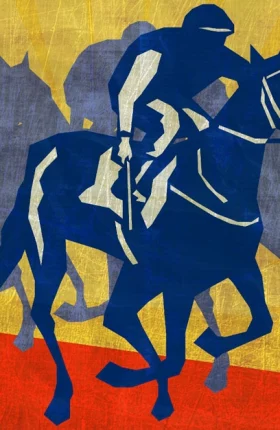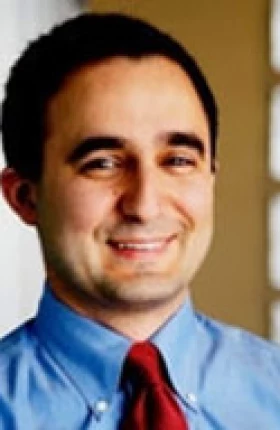In 1984, Guinness World Records named Sir Ranulph Fiennes the “world’s greatest living explorer.” Since then, he has crossed Antarctica by foot, discovered a lost city within a vast city, and run seven marathons in seven days. He has also attempted a solo walk to the North Pole—an aborted mission that later caused him, using a collection of hand tools, to amputate fingers of one of his hands. (The doctors wanted to wait five months to perform surgery.)
It’s quite clear that Fiennes, 72, knows about exploration, risk, and reward. Careful not to draw exact parallels between exploration and business, he offers some general observations and insights in the course of his conversation with Alexander Roos, a senior partner and managing director of The Boston Consulting Group and global leader of its Corporate Development practice. Excerpts follow.
Sir Ranulph, thank you so much for being here with us and talking to us about exploration and leadership.
I am delighted. Thank you for asking me, Axel.
Looking back at your life and your many adventures, which of these adventures are you especially proud of?
I think the one that took the longest—26 years—to complete was to find the lost city of Ubar in the greatest desert in the world, the Rub’ al Khali, or Empty Quarter, in Arabia. On the eighth expedition, in 1992, we found the lost city, and now, today, it’s the biggest excavation works in Arabia.
You talk a lot about planning pessimistically when you are preparing for expeditions like that one. What can business leaders or governmental agencies learn about planning pessimistically?
I am very careful not to draw exact parallels between expeditions and business. Having said that, I find it is easy to be too pessimistic and not attack or too optimistic and buy things that you can’t pay for. The answer of course is realism, which is guessing, which is statistics, which is the medial point.
In Antarctica, we knew that to do the first crossing of the continent without aircraft, we would have to cross 900 miles of unexplored, unknown territory. We had to sit on the edge before going into the unknown area for eight months of dark, cold winter when you cannot travel—now or then. We were sitting on the edge of the unknown for eight months, unable to plan pessimistically or optimistically because we had no information from predecessors.
Do you have any thoughts on how to balance competitiveness and avoiding risks yourself when you are in the competition?
Having made sure that you have tried to find out everything that is known about the problem or about the risk, then you need to decide whether to plan the method of attacking with the best possible people—people who could be considered as experts. If you think that they are not going to take risks in order to protect their own reputations—because it’s safer—then don’t ask them.
What are you are looking for in people when you try to compose the best team possible for your next expedition?
If there are six members of the team and one of them is wrong, a bad choice, the whole expedition fails even though the other five are good choices. We can’t afford to have one bad apple. I have found statistically that if people have a religious faith, that is a good sign. It doesn’t matter what faith. Any faith.
You once said that you can’t teach character, but you can teach skills. What do you mean by this, and how do you use it when you manage your people?
On one occasion, I had 800 applicants. I took only two. The two we chose worked out perfectly. One of them had never been on an expedition. He had been a beer salesman in London. The other one, from South Africa, had been in a butcher’s business which had gone wrong, so he’d joined the British Army as a soldier. The characters of these two were just perfect. They were everything we were looking for. When we put them into bad situations, a bad side of their character did not appear. They were not egocentric. They were not sarcastic when they were feeling bad.
Exploration seems to be at the heart of humanity. What can business leaders and what can larger organizations learn from that? How can we make use of the urge to explore that is in all of us?
If you want to fit exploration into business, look at the rules which are inhibiting you. Don’t accept them. Find a way to work with them or work around them.
About Sir Ranulph Fiennes
At a Glance
1944, born in Berkshire, UK
Education
Eton College
Career Highlights
2003, completed seven marathons in seven days on seven continents, with the Falklands Island representing the Antarctic leg
2000, attempted to reach the North Pole on foot and unsupported (without resupply or outside contact)
1991–1992, became the first explorer, along with a partner, to cross Antarctica by foot and unsupported
1991, discovered the lost city of Ubar
1986–1990, became the first person, along with a partner, to reach the North Pole by foot and unsupported
1979–1982, became the first person, along with a partner, to circumnavigate the world on its polar axis using only surface transport, a 52,000-mile journey
1969, led the first hovercraft expedition up the Nile
1963–1970, served as an officer of the British Army
Selected Awards
Awarded honorary degrees from, among others, Abertay University, Glasgow Caledonian University, Loughborough University, University of Central England in Birmingham, University of Chester, Plymouth University, University of Portsmouth, and University of Sheffield
1993, named Officer of the Order of the British Empire
1984, named the “world’s greatest living explorer” by Guinness World Records
1982, awarded the Livingstone Medal by the Royal Scottish Geographical Society
1970, awarded the Sultan of Oman’s Bravery Medal
